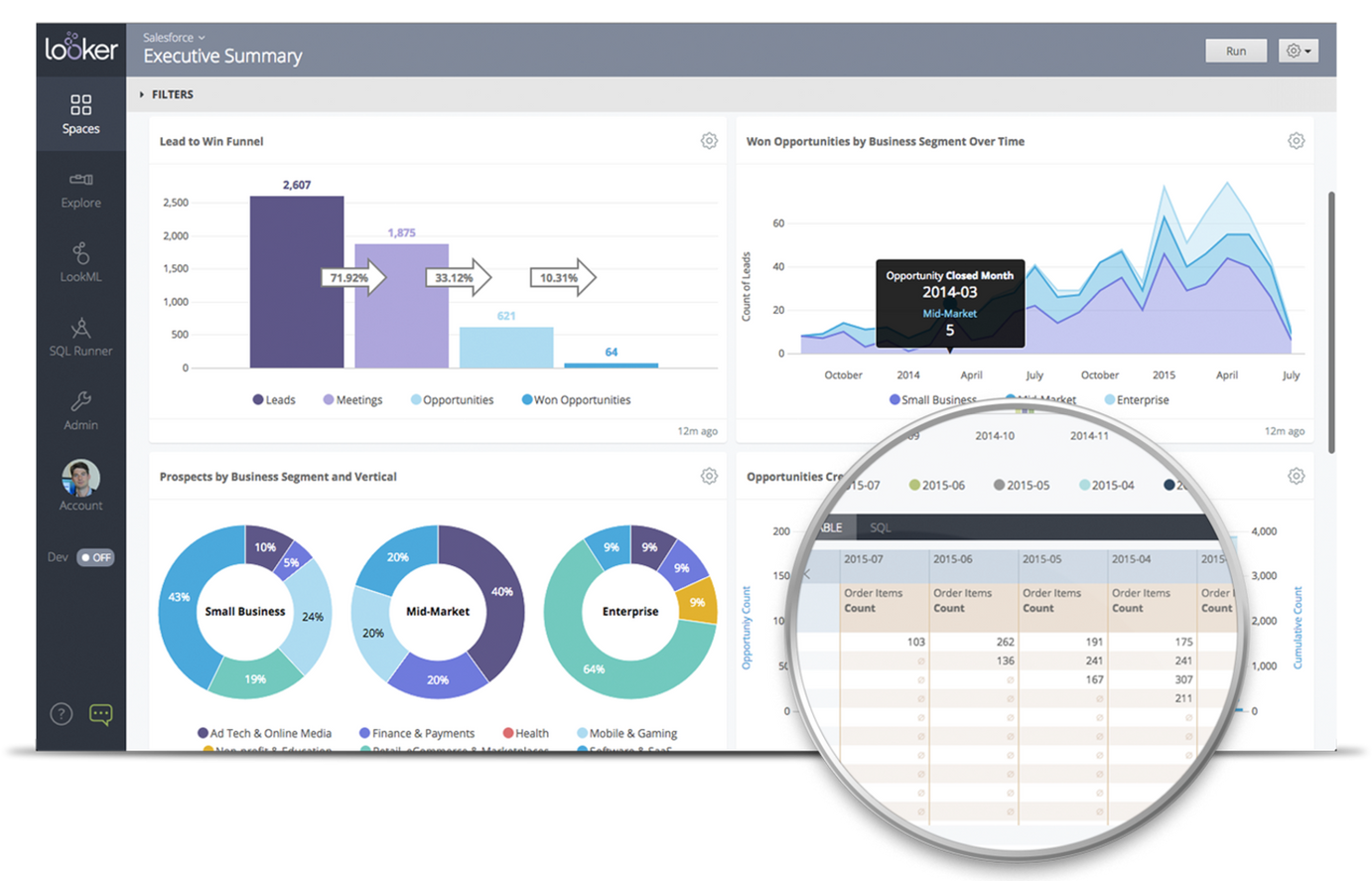As millennials become leaders within organizations, they are demanding enterprise software that’s as delightful as the consumer applications they use every day. We are undergoing a massive transition. Unlike a decade ago when software addressed the needs of a few power users in a business, the most disruptive enterprise applications today are intuitive and can be used by every employee.
Despite widespread adoption of legacy business intelligence (BI) solutions like Business Objects, Cognos and MicroStrategy (which alone represent $14B of aggregate market value), business users have essentially been flying blind regarding their companies’ data. They’ve been limited to pre-configured BI dashboards and are at the mercy of their data teams to run custom analyses, which creates massive bottlenecks that prevent timely, data-driven decision making. Until now.
This is why we invested in Looker.
Looker enables all business users to browse data as easily as they browse the web. The product allows data teams to curate a self-service data analytics experience, providing anyone – from highly sophisticated data analysts to non-technical employees – the ability to interact with live data, run ad-hoc analyses, build dashboards, and share and collaborate around reports. All of this can be done on the fly, without any pre-modeling of data or weeks of lag time. This allows every employee to make data-driven decisions, transforming the efficiency and effectiveness of entire organizations.
Looker has built a product that people actually want to use, it is helpful and intuitive in a category where most tools are neither.
The magic of Looker is that reports are dynamic – every data point is clickable and every click results in a new set of data the user can analyze. This is a vast improvement over legacy BI solutions, which rely on complex querying tools that limit true data exploration capabilities to engineers. Looker has created an agile data modeling language, called LookML, which abstracts SQL so it’s easy, powerful and efficient for anyone that is modeling or querying data. The ultimate benefit is that business users can generate complex queries (such as clicking on a data point they want to drill into) directly in Looker’s web interface, without ever interacting with the underlying SQL code.
Looker has built a product that people actually want to use – it is helpful and intuitive in a category where most tools are neither. We spoke with dozens of customers over the past year and were astonished by their excitement about the product. Each of them touted improvements in key performance metrics that resulted from non-engineering employees’ ability to ask and answer their own questions about data. Moreover, we discovered things like: it’s not uncommon for upwards of 80% of employees in an organization to use Looker, many of whom do so daily; employees have threatened to quit if Looker is ever taken away; and M&A deals have hinged on the target’s continued ability to use Looker post-acquisition. This level of engagement and customer loyalty are rarely associated with enterprise products.
The Looker team should be very proud of everything they’ve accomplished. In particular, Frank Bien (CEO) and Lloyd Tabb (Founder & CTO) deserve tremendous credit for attracting top notch talent, scaling the business rapidly but thoughtfully, and creating an exceptional culture.
We are thrilled to welcome Frank, Lloyd and the entire Looker team to the KPCB family!
